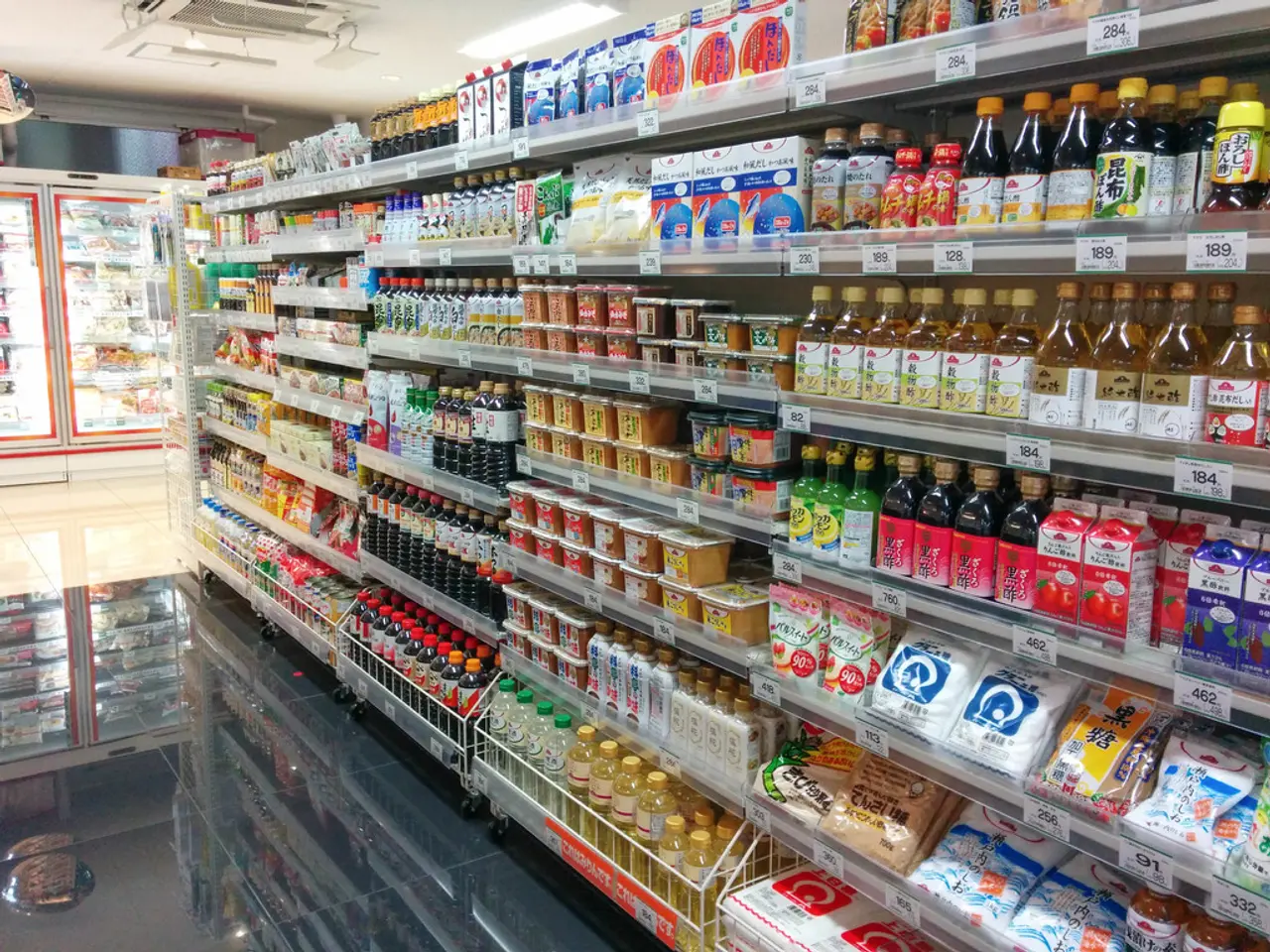Thai Retail Industry Experiences Vigorous Expansion, Primarily Fueled by Online Surge
**Global Retail Market Soars Amidst E-commerce Boom**
The global retail market experienced a significant surge in 2024, reaching an approximate value of $18.60 trillion, according to industry reports. This marked a 1% increase from the previous year, with e-commerce playing a pivotal role in the growth.
Switzerland led the world in retail sales per capita in 2024, but it was Thailand that saw the most remarkable transformation in its retail sector. The Thai retail market expanded by an impressive 6.02% in 2024, reaching a total value of 4.51 trillion Baht. Online sales surged, with the proportion of online retail in Thailand's market rising from 20.45% in 2022 to 23.50% in 2024, representing an astonishing 379% increase compared to 2019.
The growth in Thailand's retail sector was not limited to online sales. The number of retail employees in the country rose by 1.96% from 2023 to 2,975,903 people, and the sector saw a 0.33% increase in operators, reaching 922,126 businesses. Remarkably, 99.77% of these businesses were Small and Medium-sized Enterprises (SMEs).
Offline retail in Thailand's market grew by a modest 0.2% during the same period. However, the ongoing rise of online commerce, the return to normal levels of tourism, and government stimulus policies such as the "digital wallet" scheme and "soft power" initiatives are set to contribute to further growth in the sector.
E-commerce has been a significant driver of growth in the global retail market, with especially strong contributions from the Asia-Pacific (APAC) region. The APAC region is the dominant force in global e-commerce growth, holding more than two-fifths of the global retail e-commerce market share in 2025. In 2024 alone, e-commerce revenue in Asia was nearly $2 trillion, exceeding the combined revenues of the Americas and Europe.
China leads as the largest e-commerce market worldwide, with internet sales comprising almost half of the country’s retail transactions. Other Asia-Pacific countries such as Indonesia (32% of retail sales online), South Korea, the Philippines, and India are notable for high or rapidly growing shares of retail sales conducted online. Southeast Asia is a key growth area, with e-commerce growing at nearly 18.6% in 2023 compared to 7% for retail overall.
Looking ahead, the global retail market is expected to exceed $20.8 trillion by 2029, growing at an average annual rate of 2%. By 2029, 64% of this growth is projected to come from the Asia-Pacific region. South Korea is poised to become the first country in history in 2025 where over half (50.3%) of its retail sales value comes from online channels. The penetration rate of e-commerce is expected to climb from 22% in 2024 to 28% by 2029.
The sector must contend with potential challenges, including economic volatility, high levels of household debt, and a consumer trend towards spending only on essentials. Competition within the Thai retail market is expected to intensify, with both domestic and international players vying for market share.
In summary, e-commerce has not only accelerated the global retail sector's expansion but the Asia-Pacific region is a pivotal hub of this growth, driving both sales volume and innovation in digital retail. Its dominant market share, rapid growth rates, and high online retail penetration highlight APAC as a critical engine for the future of global retail e-commerce.
[1] Statista (2023) Global Retail E-commerce Sales 2014-2027. [Online] Available at: https://www.statista.com/statistics/269009/worldwide-retail-e-commerce-sales/
[2] eMarketer (2021) Asia-Pacific E-commerce Sales to Surpass $2 Trillion in 2024. [Online] Available at: https://www.emarketer.com/content/asia-pacific-ecommerce-sales-to-surpass-2-trillion-in-2024
[3] McKinsey & Company (2021) APAC E-commerce: A US$1.5 trillion opportunity. [Online] Available at: https://www.mckinsey.com/business-functions/mckinsey-digital/our-insights/apac-e-commerce-a-usd-1-5-trillion-opportunity
[4] Google, Temasek, Bain & Company (2022) e-Conomy SEA 2022: Navigating the New Normal. [Online] Available at: https://www.bain.com/insights/e-commerce-sea-2022-navigating-the-new-normal/
- The growth in the global retail market, driven largely by e-commerce, has significant implications for international finance, economics, and politics.
- The surge in online sales in Thailand, as well as the rise of Small and Medium-sized Enterprises (SMEs) in the Thai retail sector, demonstrates the potential of e-commerce to stimulate business and create employment opportunities.
- As e-commerce revenue in Asia exceeds the combined revenues of the Americas and Europe, it is clear that the Asia-Pacific region, specifically Southeast Asia, presents a lucrative opportunity for tourism and travel, given the convenience and accessibility that digital retail provides.
- The anticipated growth of e-commerce in the Asia-Pacific region, with South Korea poised to lead, could impact global technology trends, as innovative digital retail strategies are likely to emanate from the region.
- In light of the boom in e-commerce and the digitalization of the retail market, it is crucial for businesses to adapt and leverage technology to remain competitive, not only in the Asia-Pacific region but globally.



